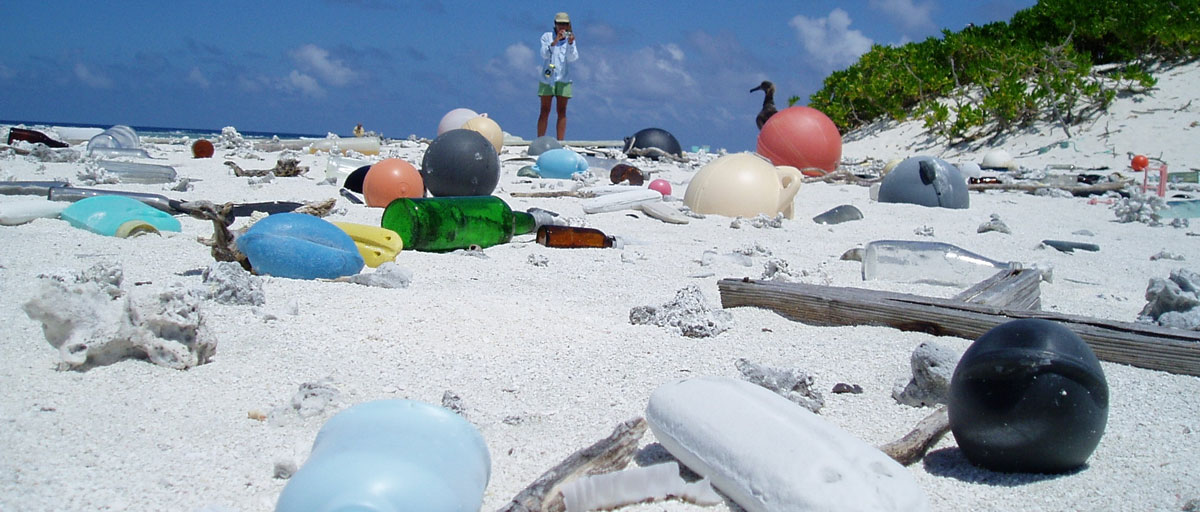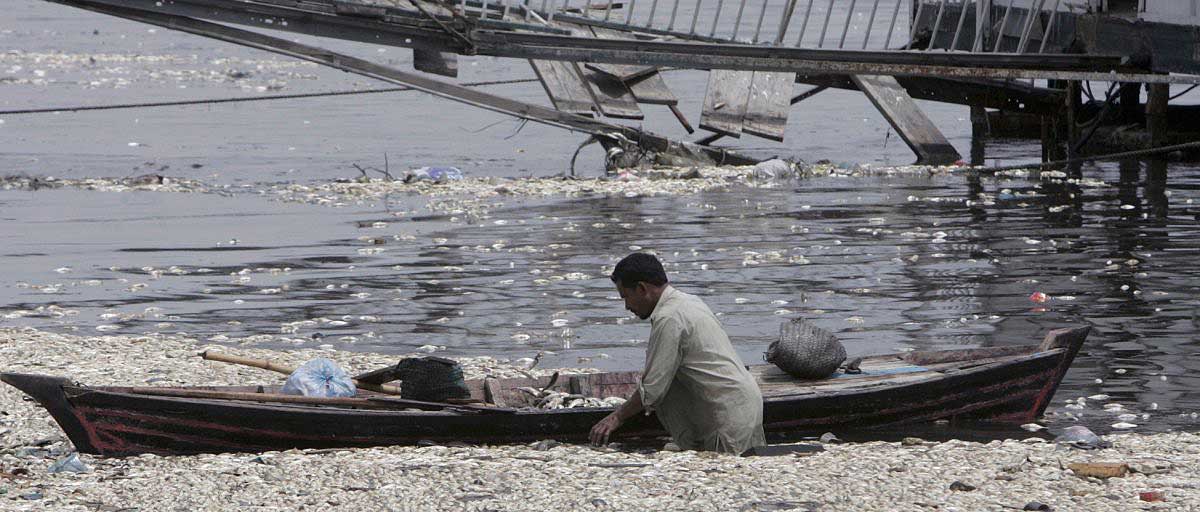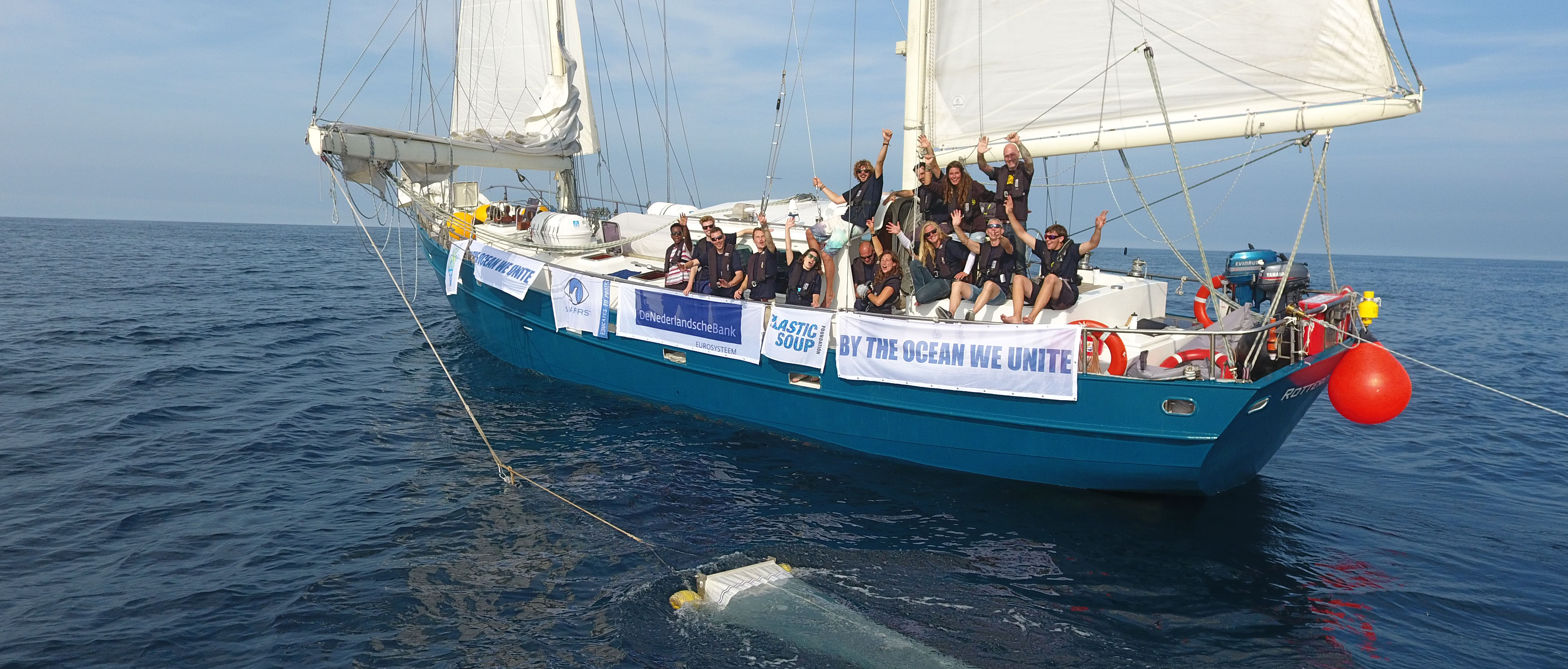
Marine plastic pollution is now firmly considered to be a planetary environmental problem and expected to be around for many generations to come. Researchers now look into whether whether it should be considered a component of the chemical pollution planetary boundary. Photo: C.Fackler/CINMS, NOAA
Bildtext får vara max två rader text. Hela texten ska högerjusteras om den bara ska innehålla fotobyline! Photo: B. Christensen/Azote
marine plastic pollution
Sea plastics’ planetary impact
New study looks at whether marine plastic pollution should be considered as a component of chemical pollutants in planetary boundaries framework
• Marine Plastic Pollution (MPP) is now firmly considered to be a planetary environmental problem and expected to be around for many generations to come
• MPP is global and is effects are irreversible, however evidence is still inconclusive whether it impacts Earth-system processes
• While MPP does not fulfil all planetary boundary criteria, researchers urge the importance of MPP to be considered in global policy arenas
Brushing your teeth is a good idea, but the oceans are less happy about the toothpaste being used. Millions of tonnes of plastic are accumulating in our oceans, reaching even the most remote and pristine areas. Microplastics from everyday products such as toothpaste, make-up, cleaning products or synthetic microfibers from our clothes are impossible to remove once they find their way into the marine environment. This is why marine plastic pollution (MPP) is now firmly considered to be a planetary environmental problem and expected to be around for many generations to come unless effective actions are not put in place.
In an article published in Marine Policy centre MSc graduate Patricia Villarrubia-Gómez and researcher Sarah Cornell explored the issue of MPP in the ocean. Specifically, they looked at MPP’s disruption on Earth-system processes, and whether MPP should be considered a component of the chemical pollution planetary boundary.
Marine plastic pollution is a global sustainability challenge, a clear example of the tragedy of the commons, difficult to manage and govern globally
Patricia Villarrubia-Gómez, lead author
Chemical pollution planetary boundary
The planetary boundaries framework views Earth as a social-ecological system where society both influences and must respect biophysical limits of Earth. There are nine planetary boundaries that society must live within, including the amount of chemical pollutants humans produce and release into the environment. While MPP is undoubtedly a global problem that urgently requires international attention, the researchers examine if there is evidence to suggest that MPP should considered as a component of the chemical pollution planetary boundary.
To be considered a chemical pollutant in the planetary boundary framework, the pollutant in question must meet three criteria:
1. Difficult or impossible to reverse its biophysical impact
2. Seen at multiple scales
3. Impact Earth-system processes, such as the global hydrological cycle
For the first criterion, the researchers found that there is a lot of evidence to support the idea that MPP is irreversible. From plastic being considered a stratigraphic marker, to plastic particles making their way through the food chain, to microplastic contamination in the ocean, the authors conclude that MPP is at this point irreversible.
To determine what scale MPP is operating at, the researchers considered evidence of MPP at various levels, and compare these findings with other chemical pollutants. The authors discuss both MPP’s direct effect on marine wildlife and indirect effects, such as bioaccumulation up the food chain. They also and systemic changes across time, space, and ecosystems. For instance, there is evidence of microplastics on the beach altering sand temperature, which has direct effects on sea turtle egg development.
With respect to scale Villarrubia-Gómez says, “Despite the fragmented state of current evidence, the mismanagement of discarded plastic is already implicated in globally systemic alteration to food webs, habitats, and biogeochemical flows. However, the extent to which marine ecosystems are affected by MPP is still highly uncertain.”
For the third and most challenging criterion to address, impact Earth-system processes, the researchers looked to the literature for MPP effects on Earth system processes, specifically carbon sequestration and biogeochemical flow of carbon. While there is some evidence to support this, Cornell notes, “Disruptive effects or thresholds can be defined in many different ways, but whether and how the impacts of MPP could be affecting vital Earth-system processes, or are instead being absorbed and buffered, is an open question. Recent studies indicate that it is uncertain whether this third condition is fulfilled.”
Incorporating MPP into the planetary boundaries framework
In evaluating MPP with respect to the planetary boundaries framework, Villarrubia-Gómez states that “Marine plastic pollution meets two of the three proposed essential conditions for chemical pollution, in the planetary boundaries framework.”
While MPP consequently does not fill all of the criteria for the planetary boundaries, Cornell believes that “Irrespective of whether marine plastic is integrated into the planetary boundaries framework, it is evident that marine plastic pollution is closely intertwined with global processes to a point that deserves careful and precautionary management.”
With millions of tonnes of plastic already floating in our oceans today, a precautionary, global approach is what is necessary to keep MPP pollution from growing, and to keep the still unknown impacts at bay.
“Marine plastic pollution is a global sustainability challenge, a clear example of the tragedy of the commons, difficult to manage and govern globally,” Villarrubia-Gómez concludes.
Villarubia-Gomez, P., Cornell, S., Fabres, J. 2017. Marine plastic pollution as a planetary boundary threat – The drifting piece in the sustainability puzzle. Marine Policy, DOI: 10.1016/j.marpol.2017.11.035

Patricia Villarrubia Goméz graudated from SRC's SERSD Master's programme in 2016. She is currently working as a research assistant at the centre.
Sarah Cornell works in global sustainability science, coordinating SRC’s research and international collaborations on Earth resilience. She leads a transdisciplinary team of researchers who aim to characterize the global ‘safe operating space for humanity’ in applicable ways.








